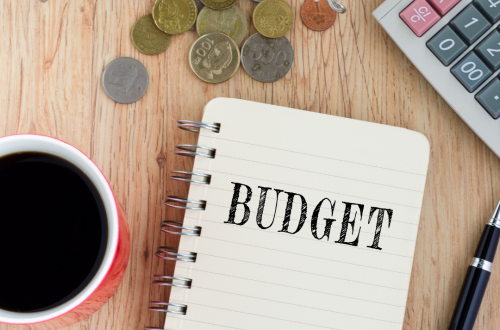We have all heard the tips to save money on day-to-day spending: switch to generic brands, carpool, avoid fast food and takeout, coupon, etc. These are all great tips for saving small amounts of money on your regular, everyday purchases, but there are some things that you are probably spending money on that you don’t even realize.
For most people, determining how much money they need is not difficult. If you know how many bills you have to pay, and if you have a handle on all the day-to-day expenses you incur, it’s easy to come up with an estimate. But, do you have a handle on all of your expenses? If you’ve never sat down and tallied up your regular expenses, then you’re unprepared to make informed spending decisions.
Have you ever wondered how some people manage to save more money than others but spend less and still manage to always have money to spend shopping or whatever else you can think of? How do they do that? There are a few simple questions you can ask yourself to help you save money every day:
- What do you need to save for?
If you want to save money, you need to know what you need to save. Based on what you want to save for, you may have to save different amounts. Saving for a car or home is very different from saving for retirement or a vacation. And saving for all of these things is different from saving money for a rainy day. A simple way to figure out what you need to save is to make a list of everything you’d like to save for and figure out how much each of them will cost. Then you should calculate how long it will take you to save each amount. And the more time it takes you to save each amount, the more you should save each month.
- What is your financial goal?
Pursuing financial freedom is the dream of many Americans. Everyone has a different idea of what this means, but the basic goal is simple: to have all the money you will need for the rest of your life and not to have to worry about financial stress. Many people can set aside money for retirement, but they remain in debt. Others may have little or no debt, but they worry about their monthly expenses.
How to get there? The short answer is not to focus on earning more money but to manage the money you already have. If you’re carrying credit card debt, you’re not saving for financial freedom. If you’re living from paycheck to paycheck, you’re not on the road to true freedom.
- How much do you need to save?
We’ve all heard that saving for retirement is important. And if we know how much we’re going to need to save to retire comfortably, we can make a budget and start saving as much as we can early on. But, how much do we need to save? This question, unfortunately, can never have an easy answer. However, we need to keep an account of our financial situation so that we don’t end up asking for help during our old age. It may also be a good idea to get in touch with a guardianship attorney in Denver (or wherever you are) so that everything is planned well in accordance. No one can calculate the exact amount of money they are going to need for the rest of their life. What we can do is take our financial situation right now, from daily expenditure to investments to our pension schemes over the years, and use them to estimate a general savings plan that might suffice our post-retirement lifestyle.
Although, we would require a really clear picture of our current retirement plans for this to work, and that could be difficult if we have a lot of pension pots laying unattended. This is where we can choose to consolidate my pension (as anyone can) and have all of our existing retirement funds in one place. Having such data can help us create a stable savings plan for all of our financial goals. And any good savings plan must start with a record of daily expenses.
- Do you have any subscriptions or standing orders that are not worth it?
We all have been guilty of starting off the new year by saying that we will go to the gym and then go out and purchase a gym membership only to use it once and never again. Sometimes we can be too ashamed to cancel it straight away and let it sit there slowly draining money that could be used for other things. All too often this happens in life with some people getting into agreements such as timeshares that potentially lose their original purpose and just start to sit there eating away at money. In this case, it might make sense to look into companies such as timeshare exit companies and other legal professionals to help with breaking the contract if needed. Most of the time you can save hundreds simply by getting rid of any money drains in your life that are no longer necessary.
- How much do you spend on food?
The Internet is full of sites that offer advice on how to manage your household budget. Some of these sites are very useful to first-time homeowners and others who are looking to save money on groceries. Several great sites help the average person track their spending and decide how to spend their money more wisely.
- How much do you spend on transport?
Our transportation costs can be affected by how far away we live from school, work, and activities. A 2006 study on transportation cost used survey data from the Bureau of Labor Statistics. The survey found that 24% of households in the Northeast region spent over $10,000 per year on transportation, while families in the South spent less than half that amount. This is a little surprising since gasoline prices tend to be higher in the Northeast.
- How much do you spend on entertainment?
The typical American household spends about $2,829 each year, or $238 per month, on entertainment. Many families squander money by playing video games or having a night of drinking. Using a legitimate platform is one way to ensure that your money is protected while betting. Boku, for example, could be considered. If you’re thinking is Boku worth the fees, talk to some professionals before giving it a shot.
But how much the average household spends on entertainment varies by city. In a city like Chicago, for example, the average household spends $2,824 per year, or $231 per month, on entertainment. The average household in a city like Philadelphia, on the other hand, spends $2,841 per year, or $233 per month, on entertainment.
In conclusion, know what you need to save for and how much you need to save, and then balance that against the costs of what you already spend.





